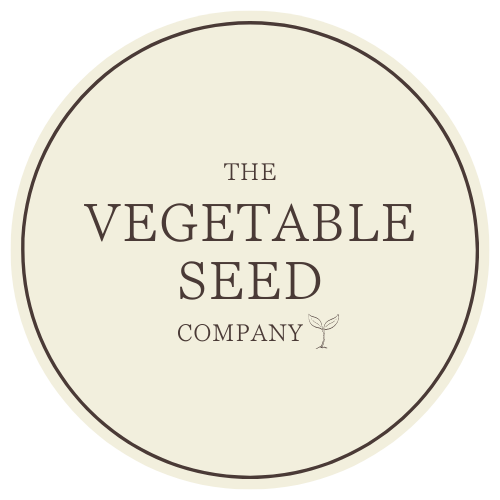Collection: Herb Seeds
An essential ingredient in many dishes, herb seeds are the perfect addition to any kitchen garden. It's cheaper, and tastier, to grow herbs from seed, so what are you waiting for?
If you're a beginner, herbs are an easy to grow plant and thrive in window boxes, patio pots and garden soil, and will produce an abundance of fresh herbs that are great for the cut and come again method - if you have a low maintenance garden - herb seeds are perfect for you.
Growing herbs allows you to have garnish for drinks as well as the perfect ingredient to add flavour to many dishes. They are versatile and can be eaten fresh, frozen or dried.
From herb flower seeds to classic herbs such as mint and basil varieties that are perfect for culinary use in meat dishes, soups and stews, we have a wide range of herb seed.
Browse our range and add your own herbs to your wildlife gardens today.
No products found
Use fewer filters or remove all
Types of Herb Seeds
Here at the Vegetable Seed Company, we stock a whole range of seeds, from those with a scented flower to the more well known herbs perfect for adding to your garden borders - we've got it all.
Thyme (Thymus vulgaris)
A low-growing herb with tiny, aromatic leaves and small flowers. Commonly used in cooking for its strong, earthy flavor.
Sage (Salvia officinalis)
Known for its grayish-green leaves and purple flowers. Used in cooking, especially in stuffing and sausages.
Chives (Allium schoenoprasum)
Features long, thin leaves that taste mildly of onion. Often used as a garnish. Grow chives in a spot with full sun and in a moist and well drained soil type.
Mint (Mentha spp.)
Known for its refreshing, cool taste. Varieties include peppermint and spearmint.
Hardy Perennial Herb
Hardy perennial herbs are an excellent addition to any garden due to their resilience and ability to come back year after year, even after cold winters making them the perfect annual herb. One of the most popular hardy perennial herbs is thyme (Thymus vulgaris). This small, low-growing herb is recognised for its tiny, aromatic leaves and clusters of pink or purple flowers.
Grow Your Own Herb Garden
Growing your own herb garden is a rewarding and practical way to ensure a constant supply of fresh, aromatic herbs for your culinary and medicinal needs. Herb gardens can be as expansive as a dedicated plot in a sunny backyard or as compact as a few pots on a kitchen windowsill. By sowing herb seeds, you can cultivate a variety of hardy perennial herbs that will thrive year after year, reducing the need for frequent replanting.
Some popular hardy perennial herbs include thyme, sage, and oregano, which not only enhance the flavour of many dishes but also add beauty and fragrance to cottage gardens and kitchen gardens alike.
When starting your herb garden, it's important to consider the growing conditions for each herb. Most herbs prefer a sunny position with well-drained, light sandy soil. However, some herbs, like wild marjoram and chives, can tolerate semi-shade.
Herbs can be grown in garden borders, pots, containers, or even window boxes, making them versatile for any garden size or location. Herbs such as French tarragon and Greek oregano require rich, fertile soil and a sunny spot, while others like chives and coriander can be more forgiving with their soil and light requirements.
The Best Time to Sow Herb Seeds
Sowing herb seeds at the right time is crucial for a successful herb garden. The optimal time to plant herb seeds depends on the type of herb, the local climate, and whether you are starting them indoors or directly in the garden.
For most herbs, spring is the ideal time to start sowing seeds. As the soil warms up and the danger of frost passes, many herbs like basil, dill, and coriander can be sown directly into the garden soil. Early spring, typically between March and May, is perfect for starting seeds indoors.
This gives the young plants a head start, allowing them to establish strong roots before being transplanted outside. Herbs such as rosemary, parsley, and thyme benefit from this approach, as they need a longer growing season to reach maturity.
